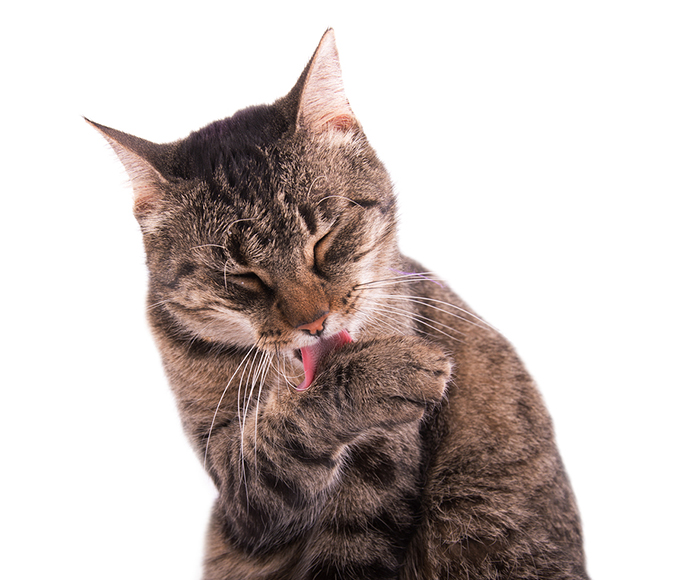Pet Hygiene

Looking neat and smelling clean are crucial aspects of social interaction for most people. While we also like our pets to smell and look nice, there are many other important reasons to maintain their hygiene. “Bathing and grooming your pets is helpful for their appearance, but even more so for their health and well-being,” explains Dr. Mark Stickney, Director of General Surgery Services at the Texas A&M University College of Veterinary Medicine & Biomedical Sciences. “Matted hair, cracked nails, and rotting teeth can all lead to very painful conditions down the road.”
Bathing your pets regularly and brushing their hair a couple times a week helps to disperse the skins natural oils through it and keeps it soft and healthy.
“It’s also important to bathe your pets for your own well being. The cleaner your pets are the less allergens there are floating around your house,” states Stickney.
While many people are tempted to use their own shampoo on their animals, Stickney points out that they make pet shampoo for a reason.
“Dog’s skin has a different pH than humans’. If you use your shampoo on your pet it is likely to make them itchy and cause their hair to be brittle,” warns Stickney.
Indoor pets also need to have their nails trimmed regularly to avoid snagging and tearing. It’s important to note that the longer nails grow and the longer interval between trimmings, the longer the blood vessels and nerves grow.
“If you let nails go too long, the nerves and blood vessels, what we call the quick, will keep growing with them. This means that when you do trim them they will most likely bleed and it will hurt your pet,” notes Stickney. “If this does happen you want to trim just a little and next week trim a little more. This will cause the quick to regress.”
If bathing, grooming and trimming your pet’s nails sounds like a little more than you would like to do on your own, you can always take them to a local groomer.
“One additional advantage to this is that a groomer may find a bump or mass on your pet that you might not have noticed,” adds Stickney.
In order to get your dogs ready for grooming, Stickney suggest that you acclimate them from a young age.
“I recommend that as soon as you get a puppy that you start regularly playing with their ears and their paws,” suggest Stickney. “This will make it easier for both you and a groomer to work with your pet and will ease its anxiety.”
Regular bathing and grooming is required for most pets, however there are some types and breeds that will need to be groomed more often than others.
“Larger breed dogs and short haired dogs will not need to be groomed as often as long haired dogs and small or toy breed dogs,” remarks Stickney. “Also, if they are active outdoor dogs they will wear down their nails naturally so you shouldn’t have to clip them as often.”
While all dogs will need to occasionally be groomed and bathed, Stickney notes that most cats are able to keep clean and work out mats on their own.
“It’s also good to note that pocket pets like hamsters and lizards also do not need baths,” states Stickney. “You are really just going to upset them if you try.”
Even though not all pets need regular baths it is important to know that there are aspects of hygiene and maintenance that are required for all pets. Keeping your pets clean and healthy throughout their lives will enhance their quality of life and the time you spend with them.
5 General Tips for Pet Hygiene:
- Keep fur brushed and free of mats.
- Brush teeth every day.
- Bath regularly as needed.
- Exercise regularly.
- Feed a high quality diet for healthy skin and hair.
Pet Talk is a service of the College of Veterinary Medicine & Biomedical Sciences, Texas A&M University. Stories can be viewed on the Web at vetmed.tamu.edu/news/pet-talk. Suggestions for future topics may be directed to editor@cvm.tamu.edu.
Angela G. Clendenin
Director, Communications & Public Relations
Ofc – (979) 862-2675
Cell – (979) 739-5718


